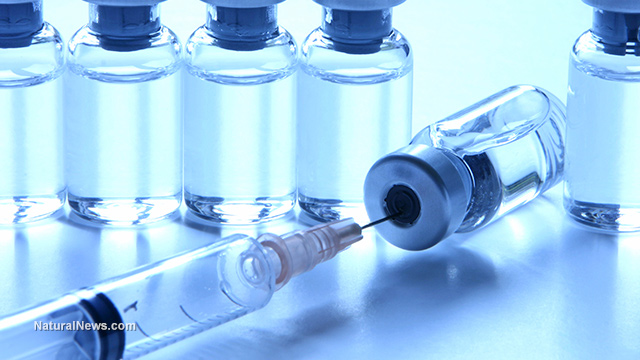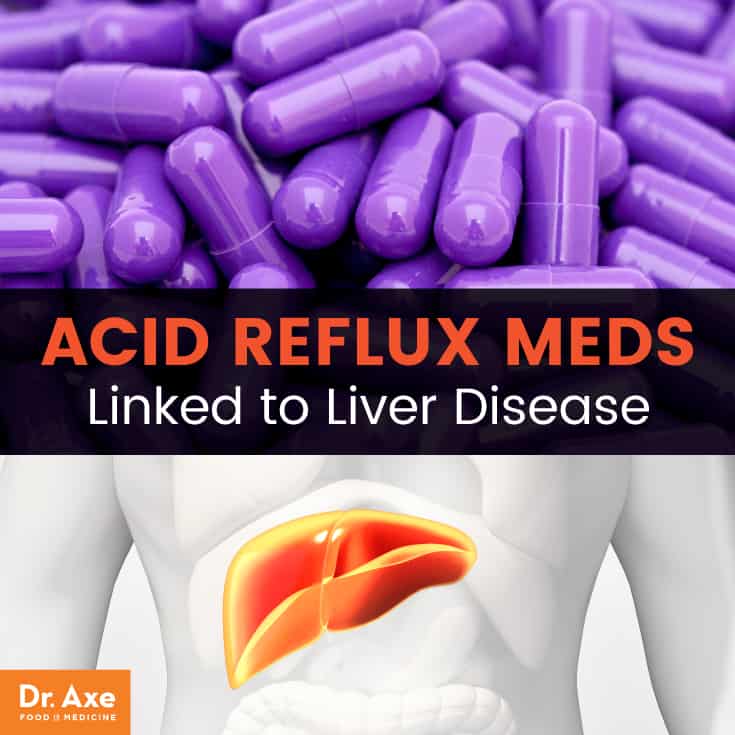Wednesday, October 25, 2017
Tuberculosis
Tuberculosis is a vitamin c deficiency which is curable with an orange which has vitamin c in it which will not only cure but will make your body immune to Tuberculosis. All you have to do is eat 3 oranges a day every day for 6 months!
Thursday, October 19, 2017
The CDC is an “edifice of fraud” warns Robert F. Kennedy Jr.

The mainstream media’s coverage of Robert F. Kennedy, Jr.’s having been asked by incoming President Donald J. Trump to lead a vaccine safety commission is a testament to just how influential the vaccine industry is regarding the manipulation of the narrative on the subject.
The reaction by the press and the scientific establishment to the announcement also indicate the level of threat perceived by those who want to continue hiding the dirty little secret that the Centers for Disease Control and Prevention (CDC) truly lives up to the “edifice of fraud” label attached to it by Kennedy.
Since Trump asked Kennedy to lead the commission, the longtime anti-mercury crusader and environmental lawyer has been called a “vulture,” an “alarmist” and worse by those in the media who take their marching orders from Big Pharma and other corporate interests.
So what exactly has Robert Kennedy, Jr. been saying that makes him such a dangerous “conspiracy theorist”?
Perhaps his refusal to mince words regarding the CDC’s inherent conflicts of interest have led to his demonization by the mainstream media news outlets:
“All the things that I do are bent on forcing this debate out into the open—because once the science is in the open, the CDC’s position is so fragile, it’s an edifice of fraud, fraud stacked upon fraud, so high and so wobbly, that even a slight breeze of public scrutiny will topple it.”
This is the kind of talk that scares the bejeezus out of CDC authorities, and it’s why they mobilize their minions in the press to smear anyone brazen enough to tell the unvarnished truth, as Kennedy, Jr. has on many occasions.
In fact, Kennedy, Jr. has also hit the nail on the head regarding the media’s collusion with the CDC:
“And the press has been compromised. And it’s not just the mainstream corporate media, but also the so-called alternative media like Huffington Post. Daniel Schulman wrote in the Columbia …Journalism Review that for journalists this is radioactive, that this is a career-ending controversy. So reporters won’t touch it, they’re really scared of it.”
So it’s no big surprise that the press has done its best to discredit Kennedy, Jr. as he now appears to be in a position to put pressure on the CDC and to bring transparency to the public.
And if there are any remaining doubts as to whether or not Kennedy, Jr. is barking up the right tree, the recent submission of a letter to the head of the CDC from a group of anonymous CDC whistleblower scientists calling themselves the Spider Group (Scientists Preserving Integrity, Diligence and Ethics in Research) should lay them to rest.
A brief excerpt from the letter sent by the Spider Group to CDC chief of staff, Carmen S. Villar:
“It appears that our mission is being influenced and shaped by outside parties and rogue interests. It seems that our mission and Congressional intent for our agency is being circumvented by some of our leaders.”
If that’s not clear justification for a full and complete investigation of the CDC, it’s hard to imagine what would be, except perhaps the fact that the CDC owns at least 20 vaccine patents itself, as Robert Kennedy, Jr. has pointed out (the actual number of patents is more like 50).
Essentially, the CDC is the vaccine industry and that’s one of the facts that needs to be made clear to the American public.
If you’d like to learn more about Robert Kennedy, Jr.’s position regarding vaccines, I recommend reading the in-depth interview conducted by Autism File Executive Editor, Rita Shreffler, published on the World Mercury Project website. Also, read excerpts from his book on Thimerosal at this Natural News link.
President Trump’s choice of Robert Kennedy, Jr. to head up the vaccine safety commission may prove to be one of his most significant acts as he assumes the presidency. Stay informed at Vaccines.news, and watch for the upcoming launch of Thimerosal.news.
The reaction by the press and the scientific establishment to the announcement also indicate the level of threat perceived by those who want to continue hiding the dirty little secret that the Centers for Disease Control and Prevention (CDC) truly lives up to the “edifice of fraud” label attached to it by Kennedy.
Since Trump asked Kennedy to lead the commission, the longtime anti-mercury crusader and environmental lawyer has been called a “vulture,” an “alarmist” and worse by those in the media who take their marching orders from Big Pharma and other corporate interests.
So what exactly has Robert Kennedy, Jr. been saying that makes him such a dangerous “conspiracy theorist”?
Perhaps his refusal to mince words regarding the CDC’s inherent conflicts of interest have led to his demonization by the mainstream media news outlets:
“All the things that I do are bent on forcing this debate out into the open—because once the science is in the open, the CDC’s position is so fragile, it’s an edifice of fraud, fraud stacked upon fraud, so high and so wobbly, that even a slight breeze of public scrutiny will topple it.”
This is the kind of talk that scares the bejeezus out of CDC authorities, and it’s why they mobilize their minions in the press to smear anyone brazen enough to tell the unvarnished truth, as Kennedy, Jr. has on many occasions.
In fact, Kennedy, Jr. has also hit the nail on the head regarding the media’s collusion with the CDC:
“And the press has been compromised. And it’s not just the mainstream corporate media, but also the so-called alternative media like Huffington Post. Daniel Schulman wrote in the Columbia …Journalism Review that for journalists this is radioactive, that this is a career-ending controversy. So reporters won’t touch it, they’re really scared of it.”
So it’s no big surprise that the press has done its best to discredit Kennedy, Jr. as he now appears to be in a position to put pressure on the CDC and to bring transparency to the public.
And if there are any remaining doubts as to whether or not Kennedy, Jr. is barking up the right tree, the recent submission of a letter to the head of the CDC from a group of anonymous CDC whistleblower scientists calling themselves the Spider Group (Scientists Preserving Integrity, Diligence and Ethics in Research) should lay them to rest.
A brief excerpt from the letter sent by the Spider Group to CDC chief of staff, Carmen S. Villar:
“It appears that our mission is being influenced and shaped by outside parties and rogue interests. It seems that our mission and Congressional intent for our agency is being circumvented by some of our leaders.”
If that’s not clear justification for a full and complete investigation of the CDC, it’s hard to imagine what would be, except perhaps the fact that the CDC owns at least 20 vaccine patents itself, as Robert Kennedy, Jr. has pointed out (the actual number of patents is more like 50).
Essentially, the CDC is the vaccine industry and that’s one of the facts that needs to be made clear to the American public.
If you’d like to learn more about Robert Kennedy, Jr.’s position regarding vaccines, I recommend reading the in-depth interview conducted by Autism File Executive Editor, Rita Shreffler, published on the World Mercury Project website. Also, read excerpts from his book on Thimerosal at this Natural News link.
President Trump’s choice of Robert Kennedy, Jr. to head up the vaccine safety commission may prove to be one of his most significant acts as he assumes the presidency. Stay informed at Vaccines.news, and watch for the upcoming launch of Thimerosal.news.
Tuesday, October 17, 2017
Popular Acid Reflux Medication Linked to Chronic Liver Disease

Proton-pump inhibitors, or PPIs, are some of the most commonly prescribed medications in the world. In fact, one study estimates Americans spend $11 billion on PPIs each year. (1) These popular pills are prescribed for the prevention and treatment of acid-relation conditions like acid reflux. But you may or may not be surprised to learn that these pills may do more harm than good.
This conventional treatment works to reverse acid reflux by reducing the amount of acid in your stomach, in turn blocking the enzyme responsible for production. Unfortunately, it’s a common misconception that acid reflux symptoms are a result of excess gastric acid. In fact, it’s normally quite the opposite. There isn’t enough stomach acid. So, not only are these medications not getting to the true root of the problem, they’re also putting you at an increased risk for liver disease, according to a 2017 study published in Nature Communications.
Acid Reflux Medication & Liver Disease
Our stomachs produce acid to kill ingested microbes. By taking a medication that suppresses the secretion of these gastric acids, it changes the composition of the gut microbiome.Researchers at University of California San Diego School of Medicine uncovered evidence in mice and humans suggesting that stomach acid suppression may promote liver injury and the progression of three chronic liver diseases: alcoholic liver disease, nonalcoholic fatty liver disease (NAFLD) and nonalcoholic steatohepatitis (NASH), as a result of these microbiome changes.
Specifically, researchers found that the lack of gastric acid promotes the growth of the bacteria Enterococcus in the intestines. When this bacteria translocates to the liver, it worsens inflammation and chronic liver disease. To confirm the increased Enterococcus bacteria was behind the effect on chronic liver disease, the team colonized mice with Enterococcus faecalis to mimic the overgrowth they had observed with acid suppression. The results? Increased Enterococcus alone was sufficient to induce mild steatosis and increase alcohol-induced liver disease in these mice.
A large, randomized, controlled clinical trial is needed to definitively show the link between PPIs and the risk of chronic liver disease in humans, but this introductory data brings to light a major concern with these all-too-common acid reflux medications. (2)
Other Acid Reflux Med Side Effects
While the risk for liver disease causes enough concern to toss aside this conventional acid reflux “remedy” for good, PPIs pose a number of other health risks. The most common, milder side effects of taking proton-pump inhibitors include: (3)- Headache
- Diarrhea
- Constipation
- Abdominal pain
- Flatulence
- Fever
- Vomiting
- Nausea
- Rash
- Clostridium difficile (C. diff)
- Osteoporosis and arthritis (4)
- Reduced absorption of vitamin B12 (cyanocobalamin)
- Magnesium deficiency (hypomagnesemia)
- Heart attack
- Stevens-Johnson syndrome
- Toxic epidermal necrolysis
- Reduced kidney function
- Pancreatitis
- Erythema multiforme
- Ulcers (5, 6)
- Inflammatory bowel conditions, including Crohn’s disease, ulcerative colitis and IBS (7, 8)
- Leaky gut
- Asthma (9)
Natural Acid Reflux Remedies
Study after study points to diet as one of the main contributing factors to acid reflux. In order to avoid complications and restore your digestive tract back to health, it’s time to change what you eat. A diet that will help restore your stomach acids back to health includes:- Organic vegetables (especially leafy greens, squash, artichoke, asparagus and cucumbers)
- High-fiber foods
- Probiotic-rich foods (kefir, bone broth, apple cider vinegar)
- High-quality protein (free-range chicken and grass-fed beef)
- Healthy fats like coconut or olive oil
- Aloe vera
- Parsley
- Ginger
- Fennel
- Alcohol
- Carbonated beverages, sugary drinks or energy drinks
- Artificial sweeteners and excess sugar
- Fried foods
- Vegetable oils, including canola oil
- Spicy foods
- Processed foods
- Refined grains
- Digestive enzymes — Digestive enzymes help foods fully digest and aid in nutrient absorption.
- Probiotics — Consuming healthy bacteria helps balance the digestive tract and get rid of bad bacteria that may lead to indigestion, leaky gut, poor absorption of nutrients and other digestive issues.
- HCL with Pepsin — HCL may help return stomach acid levels to a healthy, balanced amount. (10)
- Chamomile or papaya herbal tea — Chamomile tea helps reduce inflammation in the digestive tract. Papain, an enzyme in papaya, aids in digestion by breaking down proteins.
- Magnesium complex supplement — Magnesium can function as an antacid, helping correct acid in the stomach, reducing acid reflux symptoms. (11)
- Melatonin — Research shows melatonin levels in individuals with acid reflux are lower than individuals without acid reflux. In one study, approximately 50 percent of individuals that took melatonin for 12 weeks had symptoms either improve or go away completely. (12)
- Use blocks to raise the head of the bed four to six inches, which can help keep acid in the stomach.
- Exercise and manage stress. Try yoga, meditation, acupuncture, art or music therapy, or another stress-management tool. A sedentary lifestyle and stress worsens symptoms of acid reflux.
- Don’t overeat. Eat smaller meals to allow foods to properly digest. Large meals and overeating put pressure on the sphincter.
- Don’t consume food three hours before bed. Allow your stomach to digest the foods from the meal and sip a cup of tea instead.
- Chew foods more. Remember, digestion starts in the mouth.
- Proton-pump inhibitors, or PPIs, suppress the secretion of gastric acids. As a result, they also alter the gut microbiome.
- The lack of gastric acid as a result of these medications promotes the growth of Enterococcus in the intestines. When this bacteria moves to the liver, it worsens inflammation and chronic liver disease.
- Natural remedies such as an acid reflux diet, supplements and eating and lifestyle changes offer an effective alternative for acid reflux relief without the dangerous side effects.
Subscribe to:
Posts (Atom)
